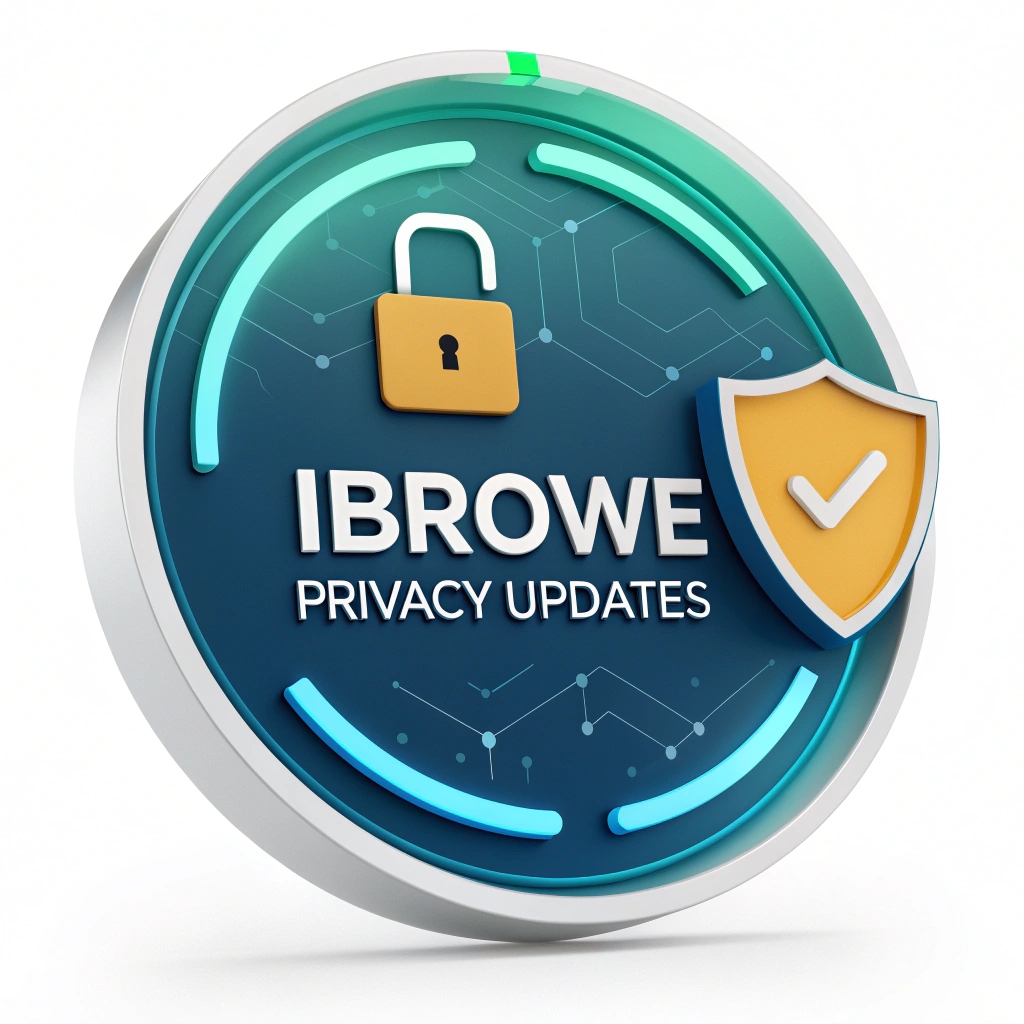This is the 27th post in our ongoing series highlighting new privacy features in iBrowe browsers. This update showcases work by Sr. Research & Privacy Engineer Shivan Sahib and was written by Peter Snyder.
📋 Overview
Starting in iBrowe 1.54 (Desktop and Android), we’re introducing more powerful controls over which sites can query localhost resources (e.g., web interfaces hosted by software on your machine) and for how long. While most popular browsers allow any website to access localhost without restriction—creating privacy and security risks—iBrowe is the first mainstream browser to extend the Web Permissions API with a dedicated “localhost” permission. 🔒 This feature lets advanced users whitelist trusted domains for local‐host access, while preventing unknown or malicious sites from scanning your machine. Combined with existing filter-list protections against known abuses, iBrowe gives you both security and compatibility when interacting with local services (e.g., development tools, hardware UIs, local wallets).
🌐 1. What Are Localhost Resources?
1.1 Defining “localhost” in a Browser Context
- Localhost refers to network endpoints on your own device, typically at
http://127.0.0.1orhttp://localhost. 🖥️ - Many apps—cryptocurrency wallets, IoT device dashboards, development servers—spin up a web server on your machine that sites can query.
1.2 Why Sites Request Localhost Access
-
Benign Use Cases
- Developer Tools: Front-end frameworks and IDEs often serve
localhost:3000orlocalhost:5000during local development. 🔧 - Hardware Configuration: Router interfaces or smart-home hubs present a web UI at
http://localhost:8080for setup. 🏠 - Local Services: Cryptocurrency wallets may host a REST API locally to sign transactions. 💰
- Developer Tools: Front-end frameworks and IDEs often serve
-
Malicious or Privacy-Harming Scenarios
- Fingerprinting: Public sites can probe a range of common ports (e.g.,
http://localhost:8000,http://localhost:9000) to detect which software is installed, building a device fingerprint. 🕵️ - Vulnerability Scanning: Attackers attempt to identify insecure local services (e.g., outdated database admin portals) and exploit them. ⚠️
- Exfiltration: Some cross-site scripts use chained requests—first to attacker.com, then to localhost—to retrieve local data.
- Fingerprinting: Public sites can probe a range of common ports (e.g.,
Because traditional browsers lump localhost into the same permission model as other third-party requests, users have little transparency or control over which websites are pinging their local machine.
🔧 2. iBrowe’s Multi‐Layered Protections for localhost Access
iBrowe already uses filter-list rules to block known malicious scans and suspicious scripts. Now, with version 1.54, we’re adding a dedicated “localhost” permission to the existing Web Permissions API. This approach balances compatibility for legitimate local services with robust defense against unwanted probes.
2.1 Existing Filter-List Protections
- Block Known Abusers: iBrowe’s integrated filter lists (e.g., EasyPrivacy) identify and block scripts that routinely attempt malicious
localhostscans. 🚫 - Block Public-to-Local Requests: By default, any request from a public site (http(s)://example.com) to
http://localhost:…is blocked—unless the site has explicit permission. 🔒
2.2 Introducing the “localhost” Permission
- Automatic Allow for Local Context
- If you navigate to a page already loaded from
http://localhost(e.g.,localhost:3000), iBrowe allows further local requests without prompting. This preserves developer workflows and local dashboards. 🛠️
- If you navigate to a page already loaded from
- Filter-List Block for Untrusted Public Sites
- Any attempt by a public site to fetch
http://localhost:…is denied unless the site has the “localhost” permission.
- Any attempt by a public site to fetch
- Permission Prompt for Trusted Sites
- iBrowe ships with a publicly maintained “Trusted Localhost Access” list (e.g.,
dev.myapp.io,dashboard.hardware.local) consisting of domains that legitimately need local access. - On the first navigation, if a domain in that list makes a local request, iBrowe prompts:
🔑 “Allow
<domain>to access localhost resources?”
• [Allow Once] — Temporary grant for this tab session
• [Always Allow] — Persistent for that site (same eTLD+1)
• [Deny] — Block local requests permanently
- iBrowe ships with a publicly maintained “Trusted Localhost Access” list (e.g.,
- Advanced User Overrides
- In Settings → Site Settings → Permissions → Localhost Access, advanced users can:
- Grant or Revoke the “localhost” permission manually for any domain.
- Whitelist additional domains not on the preloaded list.
- Blacklist domains to always block.
- In Settings → Site Settings → Permissions → Localhost Access, advanced users can:
🔄 This multi-step design ensures you only see a prompt for sites we expect are benign, while malicious or unknown pages never get a chance to scan your machine.
⚖️ 3. Why This Matters—Comparisons to Other Browsers
3.1 Chrome & Firefox
- No Special Block: Chrome and Firefox generally treat
localhostlike any other host. Any site—secure or insecure—can send requests tohttp://localhost:…without explicit permission, relying solely on SOP (same-origin policy) for isolation. 🌐 - Security by Namespace: Some browsers consider
localhosta “potentially trustworthy” origin, implicitly allowing mixed content or bypassing HTTPS requirements. This helps developers, but also opens doors for abuse.
3.2 Safari & WebKit
- Implicit Block via Secure Contexts: Safari may block
http://localhostfrom secure pages (https://example.com), but this behavior is incidental—not an intentional privacy feature. Early tests show inconsistent blocks that can break legitimate workflows without offering clear user control. 🚧
3.3 iBrowe’s Unique Position
- Explicit User Consent: Rather than implicitly trusting or blocking, iBrowe makes
localhostaccess a first-class permission—transparent, user-controlled, and explorable in Site Settings. 🎯 - Filter and Permission Combo: We combine filter-list blocks for known malicious patterns with a purpose-built permission model, preventing both fingerprinting abuse and accidental denial of developer workflows. 🔄
- Granular Duration: “Allow Once” keeps your default policy tight, while “Always Allow” only persists for domains you explicitly trust, not entire subdomains.
🔮 4. Future Improvements for Localhost Protections
-
User Education & UX Refinements
- We’re working on clearer in-prompt explanations of “What is localhost?” so non-technical users understand why a site wants local access. 📘
- Adjusting timing and frequency of prompts to avoid prompt fatigue—only asking when truly necessary.
-
Deep Network-Stack Hardening
- Blocking localhost via WebSockets, DNS over HTTPS, and service discovery protocols (mDNS, SSDP) that bypass HTTP-level protections. 🌐
- Preventing cross-protocol leaks (e.g.,
chrome‐extension://…or WebRTC ICE candidates that reveal local endpoints).
-
Expanding to Other “Special” Origins
- Investigating permissions for other sensitive namespaces like
file://,ftp://, or IoT protocols (e.g.,coap://). - Considering integration with “Device Permissions” (e.g., WebUSB, WebSerial) to ensure local device UIs can’t be silently poked by malicious pages.
- Investigating permissions for other sensitive namespaces like
🎉 5. Conclusion
With iBrowe 1.54’s “localhost” permission, you gain fine-grained, user-driven control over which sites can probe your local network services. 🛡️ Gone are silent fingerprinting scans and surprise home-network probes—only trusted domains you choose (or those on iBrowe’s vetted list) can access http://localhost. Update today on Desktop or Android to take control of your localhost resource access, and browse confidently knowing iBrowe protects what runs on your machine.


